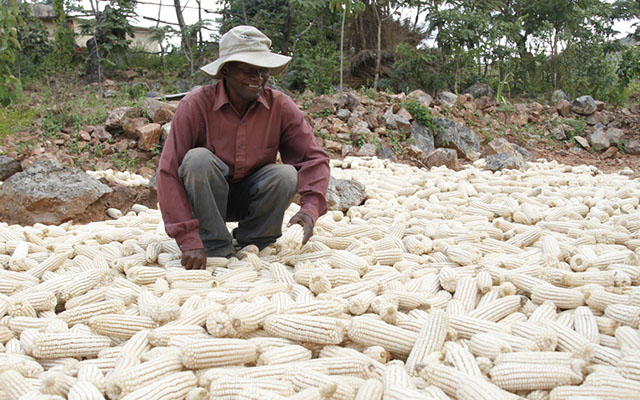Ebola: Let Africa tell its own story

 “While the debate about the legitimate writers of the African story rages, African writers and African editors must take a hard look at themselves and ask why the proliferation of stories written by Western journalists continues under their watch.
“While the debate about the legitimate writers of the African story rages, African writers and African editors must take a hard look at themselves and ask why the proliferation of stories written by Western journalists continues under their watch.
Why, for example, would newspapers use stories about Africa that are written by Western journalists, and why would they even lift copy from Western newspapers to be put on their pages, when they could use local journalists?”
Media coverage of the Ebola pandemic stokes the age-old and ever-relevant debate about the need for Africans to write their own stories.
The portrayal of the disease as wreaking havoc across the entire African continent when, in truth, cases of the disease have been reported in only four countries, illustrates the dire need for Africa to write its own stories.
Africa is a continent of 55 countries, and those with widespread transmission of Ebola are Guinea, Sierra Leone and Liberia. One case was reported in Mali on October 23, according to the Centre for Communicable Diseases. Outside Africa, a single case has been reported in Spain, and four US health care workers have been affected by the virus.
Since the first reports of the 2-year-old boy from Guinea who became the first index case, Western media have taken the story by the scruff of its neck and created large-scale terror of Africa. Whether this is by accident or by design is debatable.
The criticism of Western journalists that they don’t cover Africa accurately, and instead promote prejudice and stereotypes to pander to their audiences, is an enduring one.
The campaign has been so successful it has fuelled real fear even among Africans who are nowhere near the countries where cases of the virus are being found.
Media reports on Ebola have alluded to Africa’s primitiveness as the reason for the spread of the disease, while ignoring, until recently, the complexities around the failing health systems in these countries, most of which have been in prolonged states of war.
Questions about the beneficiaries and funders of these wars is a debate for another day. But back to the Ebola media coverage.
We’ve been swamped with stories about Africans slaughtering bats and eating wild meat, relatives hiding infected family members, and witchcraft as reasons for the outbreak.
Images of health workers in protective gear and goggles have dominated the front pages of newspapers, sending fear through most people, even those who deem themselves brave.
Much like the coverage of the HIV/Aids pandemic in the early years of its discovery, Ebola has been portrayed as an African disease.
The level of misinformation on social media sites is scary.
Such is the ignorance surrounding the virus that Sierra Leone football player John Kamara was asked not to play with his Greek club for three weeks when he returned from playing for his country in Cameroon.
As you will have gathered from the information above, Cameroon does not feature among the countries that have had Ebola cases. If the bosses at the Greek club had resorted to a little research, rather than prejudice or fear based on ignorance, they would have known that Cameroon is a few borders away from Sierra Leone.
Closer to home, Minister of Health Aaron Motsoaledi has been forced on many occasions to allay fears and reiterate South Africa’s readiness to tackle any Ebola outbreak here.
Since the historic 1962 conference at Makerere University in Uganda, at which writers and scholars gathered to discuss the state of African literature, this question of who should tell African stories, and how these stories should be told, has persisted. Accusations have been levelled largely at Western journalists.
There are many schools of thought on why the African story cannot be written properly, even if written by Africans themselves, as can be seen in the mainstream media and the book-publishing world.
Some say it is a systematic problem that promotes those who tell the story from a Western or European perspective. On the other hand, issues of lack of money are often posited as the reason why Africans allow others to tell their stories.
While the debate about the legitimate writers of the African story rages, African writers and African editors must take a hard look at themselves and ask why the proliferation of stories written by Western journalists continues under their watch.
Why, for example, would newspapers use stories about Africa that are written by Western journalists, and why would they even lift copy from Western newspapers to be put on their pages, when they could use local journalists?
I can already hear money being used as the reason for this. Not that I buy this excuse, are Africans willing to sacrifice the proper portrayal of themselves and their stories for money?
Why would African editors and journalists allow the perpetuation of the negative stereotypes about Africa?
They must ask themselves why they find it difficult to uncover and publish positive stories about the continent.
They must answer truthfully the question of whether the power bestowed on them in their positions in management and broadcasting corporations and the editorships of newspapers is real power, and whether they are able to exercise this power.
There has been nothing more astonishing in recent times than to see the Setswana or Sesotho idiom “Ntwa ya dibono” being bastardised in translation in our newspapers.
It was astonishing, given that we have many Africans in newsrooms.
The idiom means “Fighting with one’s might”, and newspapers translated it as “Fighting with our buttocks”. Where were the Africans to help their counterparts translate? — iol.co.za







Comments